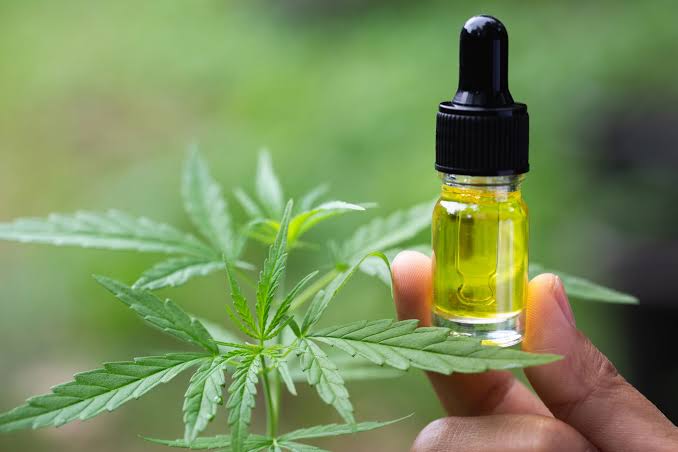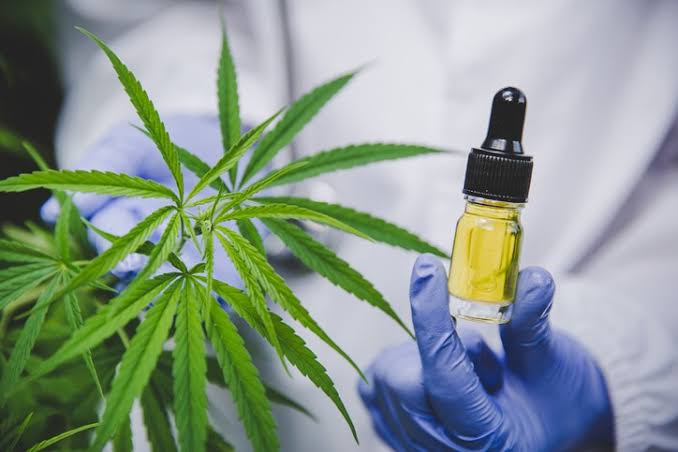Cannabidiol (CBD) is one of a number of chemicals found in the cannabis plant. It is gaining popularity because it appears to provide a plethora of advantages. While there is still a strong debate about whether or not CBD should be used in cancer treatment, some experts advocate it.
It is still too early to make any claims about CBD’s potential as a cancer treatment, in general. While the preliminary results of tiny trials on cancer cells are encouraging, they do not provide definitive evidence of their effectiveness.
Meanwhile, this chemical may be beneficial in the management of various cancer symptoms and adverse effects associated with treatment. Researchers are also investigating a wide range of other, perhaps related, applications for CBD, which may include the treatment of anxiety and chronic pain.
Please keep in mind that CBD is not the same as tetrahydrocannabinol (THC), which is a distinct component found in cannabis that causes a “high” when smoked or consumed.
In this post, you will learn about the various ways that CBD may be beneficial to cancer patients.
Is Cannabidiol (CBD) legal? CBD products derived from hemp that contain less than 0.3 percent THC are allowed under federal law, but they are still banned under several state regulations. CBD-derived products manufactured from cannabis, on the other hand, are prohibited under federal law but allowed under some state regulations. When travelling, especially in foreign countries, always sure to check local legislation. It’s also important to remember that the Food and Drug Administration (FDA) has not approved nonprescription CBD products, which may be labelled incorrectly.
Complementary treatment

CBD and cannabis medicines, according to the bulk of the existing research, may be beneficial in the context of cancer treatment. People suffering from cancer may benefit from CBD in the following ways:
Increasing one’s appetite
Many cancer patients suffer from nausea and loss of appetite, which can make it difficult to maintain a healthy weight while undergoing cancer treatment.
It is possible that ingesting a cannabis product that contains THC and distributes it to the bloodstream can assist to enhance the appetite. There is no evidence, on the other hand, that CBD by itself has such an effect.
Relieving pain
Cancer, as well as its treatment, can cause discomfort. Pain associated with cancer is frequently caused by inflammation, pressure on internal organs, or nerve injury. When the pain is severe, it is possible that it will grow resistant to opioids, which are extremely effective pain relievers.
CBD acts on the CB2 receptors in an indirect manner, which may provide general pain relief by lowering inflammation throughout the body. THC works on the CB1 receptors, which may be beneficial in the treatment of pain caused by nerve injury.
Easing nausea
Cannabis may be beneficial for cancer patients who suffer from nausea and vomiting on a regular basis, especially if the nausea and vomiting are caused by chemotherapy.
The antinausea effect, on the other hand, appears to be caused by the THC in the plant, rather than the CBD. Anyone considering using cannabis to alleviate nausea should be aware of the psychoactive effects of THC found in recommended cannabis products and explore their options with their doctor before proceeding.
Low amounts of THC offer alleviation for a large number of people. There are also prescription-only variants of synthetic THC that have less adverse effects than the recreational versions.
CBD for cancer prevention
Some people believe that cannabis or CBD may have cancer-preventative properties. In its evaluation of multiple cannabis-related cancer studies, the National Cancer Institute (NCI) came up with a mixed bag of findings.
The results of an older study conducted in the United States on 64,855 persons indicated that cannabis use did not enhance the chance of developing tobacco-related malignancies. This study, on the other hand, discovered that males who used cannabis but did not smoke tobacco had a higher chance of developing prostate cancer.
The authors of a 2015 study in men, on the other hand, discovered a promising association between cannabis and bladder cancer, according to the authors. Participants who smoked cannabis had a 45 percent decreased risk of developing bladder cancer, according to the researchers, after accounting for a variety of variables.
Despite the fact that research has revealed that cannabis smoke contains carcinogens, the link between inhaled cannabis and cancer has remained a matter of contention.
The body is not exposed to the same carcinogens when CBD extract is consumed, as is the case when marijuana is smoked. Long-term studies in people will be essential in order to identify whether or not CBD has a role in the prevention of cancer.
Can CBD be used to cure cancer?
There are currently no substantial clinical trials evaluating the use of cannabis or cannabinoids, such as CBD, as a cancer treatment at this time. The use of THC and CBD in combination with chemotherapy as a treatment for a specific form of brain cancer is being investigated in small pilot trials, which include an enquiry into the use of THC and CBD in combination with chemotherapy as a treatment for a type of brain cancer. The investigation, on the other hand, is still in its early stages.
Following the discovery that cannabinoids reduced the growth of many different types of tumour cells in test tubes and animal models, scientists came to the conclusion that cannabinoids hold potential in the fight against cancer in 2016.
They did, however, point out that certain cannabis dosages and kinds may inhibit the immune system, allowing cancers to develop unchecked.
Overall, much more research will be required to determine whether cannabis can be used to combat cancer.
Side effects of CBD
When it comes to the brain, cannabinoid receptors do not behave in the same way that many other drug receptors do. This means that consuming CBD, for example, may have a reduced chance of side effects than using a prescription medicine, for example.
Aside from that, there are no known deadly amounts of CBD or THC, which is not the case with typical pain treatment medicines. This is due to the fact that cannabis does not interfere with the function of the respiratory system in the central nervous system, as opiates do.
It is important to note, however, that cannabinoid receptors are found throughout the body. As a result, CBD has an effect on not only the brain, but also on a variety of other organs and tissues.
Researchers have discovered that people generally tolerate CBD well, but that some people may experience modest adverse effects, which include the following:
CBD has also been shown to interact with a variety of drugs and cause liver damage in some cases. These drugs are as follows:
- antibiotics
- antidepressants
- antianxiety medications
- anti-seizure medications
- blood thinners
- chemotherapy drugs
- muscle relaxers
- sedatives, or sleep aids
Because CBD products have the potential to interfere with some over-the-counter medications and supplements, it’s a good idea to consult with your doctor before using them.
Aside from that, users should take caution if they are taking CBD in conjunction with prescription drugs that contain a warning regarding potential interactions with grapefruit.
Increased liver toxicity is another possible negative effect of CBD use, according to the FDA. In one study conducted in 2019, researchers gave mice varied amounts of CBD to see how they responded. The mice who received greater doses of the drug developed liver damage within one day of receiving it.
Some people may be apprehensive about the prospect of getting reliant on CBD for their daily needs. During clinical studies of Epidiolex, a CBD medication that has been approved by the Food and Drug Administration (FDA) for the treatment of epilepsy, researchers discovered no evidence of physical dependence. The safety information for Epidiolex contains a warning concerning the possibility of liver issues, which is provided by the manufacturer.
Finally, as the National Cancer Institute (NCI) points out, CBD inhibits particular enzymes that may be useful in cancer treatments. It is possible that persons who take CBD will have less success with cancer treatments that rely on these enzymes.
Conclusion
While CBD appears to be effective in alleviating some cancer symptoms and side effects of treatment, there is no evidence to show that CBD is effective in combating cancer itself. Furthermore, as the National Cancer Institute (NCI) points out, ingesting CBD may directly interfere with certain cancer treatments.
Talk to your doctor before using CBD during cancer treatment, just like you would with any new supplement, to make sure it won’t cause any interactions.
Sources
- https://www.cancer.gov/about-cancer/treatment/cam/hp/cannabis-pdq
- https://www.accessdata.fda.gov/drugsatfda_docs/label/2018/210365lbl.pdf
- https://www.medicalnewstoday.com/articles/324745
- https://www.mdpi.com/1420-3049/24/9/1694
- https://www.fda.gov/consumers/consumer-updates/grapefruit-juice-and-some-drugs-dont-mix
- https://pubmed.ncbi.nlm.nih.gov/28100841/
- https://www.ncbi.nlm.nih.gov/pubmed/9328194?dopt=Abstract
- https://www.ncbi.nlm.nih.gov/pmc/articles/PMC5852356/
- https://www.ncbi.nlm.nih.gov/pubmed/25623697?dopt=Abstract
- https://www.nature.com/articles/s41416-021-01259-3







